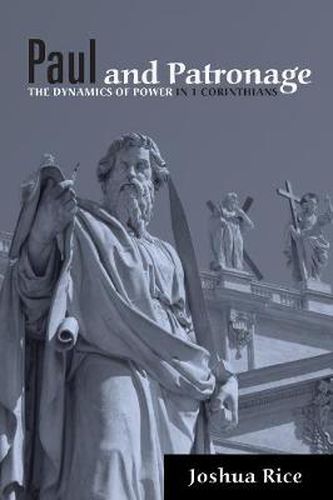Readings Newsletter
Become a Readings Member to make your shopping experience even easier.
Sign in or sign up for free!
You’re not far away from qualifying for FREE standard shipping within Australia
You’ve qualified for FREE standard shipping within Australia
The cart is loading…






This title is printed to order. This book may have been self-published. If so, we cannot guarantee the quality of the content. In the main most books will have gone through the editing process however some may not. We therefore suggest that you be aware of this before ordering this book. If in doubt check either the author or publisher’s details as we are unable to accept any returns unless they are faulty. Please contact us if you have any questions.
The question of how leadership and authority functioned in the Pauline church remains one of the most polarizing issues in New Testament scholarship today. On the one side are egalitarian and counterimperial readings that stake their interpretation of the liberating gospel upon a depiction of the Pauline church as radically countercultural with regard to leadership and authority. On the other side are authoritarian readings that just as easily conceive of Paul as fully embedded within the cultural conceptions and structures of leadership and authority in vogue across the Greco-Roman world. This study employs social-science criticism to construct a model of ancient patronage conventions and power-exchange dynamics in the Greco-Roman world, and this model is then applied to 1 Corinthians. This study finds that when Paul addresses his own apostolic relationship to the Corinthians, he tends toward reinscribing traditional hierarchies, but that when Paul addresses relationships between participants of the Corinthian assembly, he tends toward overturning them.
$9.00 standard shipping within Australia
FREE standard shipping within Australia for orders over $100.00
Express & International shipping calculated at checkout
This title is printed to order. This book may have been self-published. If so, we cannot guarantee the quality of the content. In the main most books will have gone through the editing process however some may not. We therefore suggest that you be aware of this before ordering this book. If in doubt check either the author or publisher’s details as we are unable to accept any returns unless they are faulty. Please contact us if you have any questions.
The question of how leadership and authority functioned in the Pauline church remains one of the most polarizing issues in New Testament scholarship today. On the one side are egalitarian and counterimperial readings that stake their interpretation of the liberating gospel upon a depiction of the Pauline church as radically countercultural with regard to leadership and authority. On the other side are authoritarian readings that just as easily conceive of Paul as fully embedded within the cultural conceptions and structures of leadership and authority in vogue across the Greco-Roman world. This study employs social-science criticism to construct a model of ancient patronage conventions and power-exchange dynamics in the Greco-Roman world, and this model is then applied to 1 Corinthians. This study finds that when Paul addresses his own apostolic relationship to the Corinthians, he tends toward reinscribing traditional hierarchies, but that when Paul addresses relationships between participants of the Corinthian assembly, he tends toward overturning them.